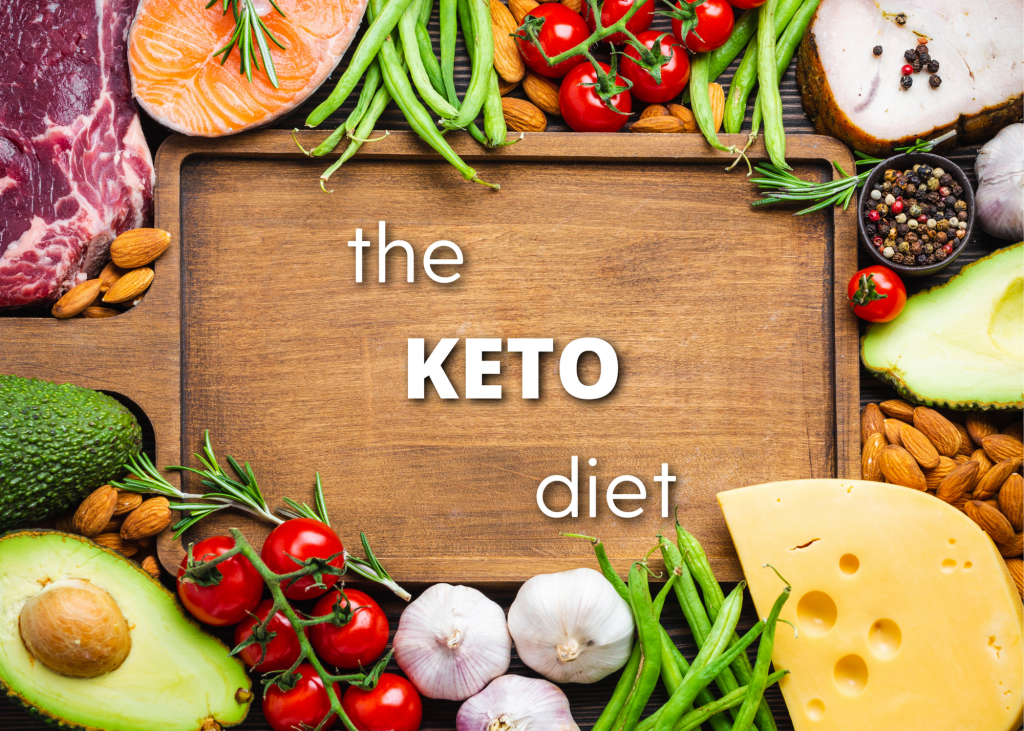By Dr. Justin Herbert, Pharm.D.
The HypnoPharmacist™ | Founder, Resilient Clarity Wellness Arts Collaborative
If you’ve been diagnosed with ADHD, you’re probably familiar with the common treatments—medications, therapy, and lifestyle adjustments. But lately, there’s been a growing buzz around using a ketogenic diet as an alternative or complement to medication, particularly for those with neurological conditions like ADHD.
So, could a ketogenic diet (keto) be the next step in your ADHD treatment plan? Let’s dive into what the research says and how it might help.
What is the Ketogenic Diet?
The ketogenic diet is a high-fat, low-carbohydrate eating plan that shifts the body’s metabolism from burning glucose for energy to burning ketones (which are produced when fat is broken down). This dietary shift has been used primarily to manage epilepsy, but research is now exploring its potential benefits for other conditions, including ADHD.
How Might Keto Help with ADHD?
1. Stable Energy for the Brain
ADHD often comes with symptoms of brain fog, lack of focus, and difficulty staying on task. Ketones, the primary fuel for the brain on the ketogenic diet, provide a more stable energy source than glucose, which can fluctuate based on meals and blood sugar levels. The more consistent energy could help improve focus and cognitive function.
2. Reduction in Inflammation
Research shows that systemic inflammation may be linked to ADHD symptoms. The ketogenic diet, especially when focused on anti-inflammatory foods like fatty fish, olive oil, and avocados, may reduce this inflammation, helping to calm the brain and improve attention.
3. Improved Neurotransmitter Regulation
The ketogenic diet may also positively affect neurotransmitters such as dopamine and norepinephrine, which are involved in mood regulation, focus, and attention. Some studies suggest that omega-3 fatty acids, commonly found in fish and used in keto diets, help support these neurotransmitter pathways, offering another layer of support for ADHD symptoms.
What Does the Research Say?
While the research on the ketogenic diet for ADHD is still emerging, there are some encouraging findings:
- Cognitive Improvement: Some studies have shown that diets high in fats and low in carbohydrates can lead to improvements in brain function and mental clarity, particularly in people with other neurological conditions.
- Neuroprotective Benefits: The diet’s effect on neuroprotection and brain plasticity could help ADHD by enhancing cognitive control and reducing symptoms like impulsivity and hyperactivity.
Is Keto a Standalone Solution for ADHD?
It’s important to understand that while the ketogenic diet may offer some benefits for ADHD, it’s not a cure. ADHD is a neurodevelopmental condition, and the ketogenic diet is just one piece of the puzzle.
Incorporating keto into your treatment plan could help manage certain symptoms, but it’s often best used alongside other interventions, like medication and behavioral therapy.
For example, a medication like methylphenidate (e.g., Ritalin) can stimulate dopamine and norepinephrine release to help improve focus and behavior. Pairing this with the ketogenic diet could potentially enhance the overall effect by providing a more stable energy source for the brain.
Should You Try the Ketogenic Diet for ADHD?
If you’re considering trying a ketogenic diet to manage ADHD symptoms, here are a few things to keep in mind:
- Consult with your healthcare provider—especially if you are already on medication. A diet change may require adjustments to your meds or overall treatment plan.
- Start slow—The ketogenic diet can be intense for some people. Gradually easing into it can help your body adjust without overwhelming you.
- Track your progress—As with any treatment plan, track your ADHD symptoms, energy levels, and focus to assess how the diet is affecting you.
Final Thoughts: Keto as an Adjunct to ADHD Treatment
The ketogenic diet holds potential for improving focus, reducing brain fog, and providing better energy regulation for those with ADHD. However, it’s important to remember that diet is just one part of managing ADHD—there is no one-size-fits-all solution.
If you’re already medicated and looking for additional support, the ketogenic diet could be a valuable adjunct to your treatment plan. However, always work with your healthcare provider to determine the best approach for you.
Interested in exploring how the ketogenic diet could fit into your ADHD treatment plan?
Reach out to Resilient Clarity Wellness Arts Collaborative for personalized support, coaching, and guidance on nutrition, lifestyle changes, and integrative approaches to mental clarity and well-being.
With clarity, focus, and a steady fuel for your brain,
—Dr. Justin Herbert
The HypnoPharmacist™
Great! Below is a tailored ketogenic plan for ADHD support, designed to support focus, brain health, and emotional regulation through nutrition. This plan is an adjunctive strategy to ADHD treatment, which can be personalized with your healthcare provider.
Tailored Ketogenic Plan for ADHD Support
By: Dr. Justin Herbert, Pharm.D. | The HypnoPharmacist™ | Resilient Clarity Wellness Arts Collaborative
Overview:
This ketogenic plan for ADHD is designed to support brain health, cognitive performance, and emotional regulation. It aims to help individuals stabilize energy levels, enhance focus, and reduce ADHD symptoms without relying solely on medication. It’s important to note that while the ketogenic diet may help manage ADHD, it is most effective when paired with other treatments like medication and behavioral therapy.
Phase 1: Baseline Assessment and Preparation (Week 1)
Objective: Establish a baseline of your health, ADHD symptoms, and dietary habits before beginning the ketogenic diet.
- Consult with your healthcare provider to ensure the ketogenic diet is safe for you, especially if you are currently on ADHD medication.
- Track your ADHD symptoms: Focus on aspects such as attention span, emotional regulation, impulsivity, and sleep quality. This will help you compare changes over time.
- Baseline Labs: Blood work to measure glucose levels, ketone levels (optional at the start), lipid profile, and micronutrients (magnesium, vitamin D, etc.).
- Dietary Habits Assessment: Take note of your current eating patterns, food sensitivities, and potential triggers.
Phase 2: Begin the Ketogenic Diet (Week 2-4)
Objective: Initiate the ketogenic diet with a moderate approach to allow your body to transition into ketosis without overwhelming the system.
- Macro Nutrient Breakdown:
- Target ketogenic ratio: 3:1 to 4:1 (fat to protein + carbs by weight).
- Carbohydrates: Limit intake to less than 50 grams of net carbs per day, focusing on low-glycemic options like leafy greens, non-starchy vegetables, and berries.
- Fats: Prioritize high-quality fats such as MCT oil, avocados, olive oil, fatty fish (salmon, sardines), and coconut oil.
- Protein: Include moderate amounts of clean protein from sources like chicken, turkey, eggs, or tofu.
- Key Foods to Include:
- Fatty fish (rich in omega-3s)
- Leafy greens, cauliflower, zucchini, and berries (antioxidants and fiber)
- Nuts, seeds, and healthy oils (supporting ketosis and brain health)
- Daily Monitoring:
- Track blood ketones (0.5-3.0 mmol/L for optimal ketosis).
- Assess any changes in ADHD symptoms (focus, mood swings, impulsivity, etc.).
- Hydration: Drink plenty of water to manage electrolyte balance, particularly during the transition phase.
Phase 3: Supplementation to Support Ketosis and Brain Function (Week 4-8)
Objective: Incorporate supplements that support brain function, stabilize energy, and prevent common ketogenic side effects like the “keto flu.”
- Core Supplements:
- Electrolytes (Magnesium, Potassium, Sodium): To prevent cramps and maintain electrolyte balance.
- Omega-3 fatty acids (EPA/DHA): To support cognitive function and neuroprotection.
- B-complex vitamins: To aid energy metabolism and reduce fatigue.
- Probiotics/prebiotics: To support gut health, which may be disrupted by the ketogenic diet.
- Vitamin D and antioxidants (C, E): To reduce oxidative stress and support mood regulation.
- Adjust Supplementation based on individual needs, health assessments, and lab results. For example, if you feel fatigued or experience mood swings, ensure you’re getting adequate magnesium and omega-3s.
Phase 4: Ongoing Monitoring and Adjustment (Week 8-10)
Objective: Assess progress and make necessary adjustments based on feedback, lab results, and changes in ADHD symptoms.
- Clinical Follow-ups: Meet with your healthcare provider to track ADHD symptoms, cognitive improvements, and any potential side effects (e.g., digestive issues, fatigue).
- Labs: Every 3 months, monitor lipid profile, glucose levels, and micronutrient status to ensure the ketogenic diet is not negatively affecting your overall health.
- Symptom Tracking: Continue tracking ADHD symptoms, including attention, focus, mood stability, and emotional regulation. Adjust the diet or supplements based on what works best for you.
Phase 5: Reassessment and Long-Term Planning (Month 3 and Beyond)
Objective: Reassess the effectiveness of the ketogenic diet for ADHD and make long-term dietary and lifestyle plans.
- Assess Improvement: After 3 months, evaluate symptom improvement, overall mood, and any changes in your ability to focus. Are you seeing a reduction in impulsivity, emotional regulation, or hyperactivity?
- Sustainability: If the ketogenic diet is beneficial, plan for a sustainable, long-term approach. Gradually reintroduce carbohydrates if desired (with a focus on low glycemic, anti-inflammatory foods) while maintaining the core principles of healthy fats and protein.
- Maintenance: Continue with regular follow-ups with your healthcare provider to track progress and ensure continued benefits.
Key Takeaways:
- Keto can support ADHD management by providing stable brain fuel, reducing inflammation, and improving cognitive function.
- Supplementation (omega-3s, magnesium, etc.) is critical to optimize results and support brain health.
- Monitoring and personalization are key to adjusting the ketogenic diet to meet your specific needs and goals.
Want to explore how the ketogenic diet could support your ADHD treatment plan?
Contact Dr. Justin Herbert at Resilient Clarity Wellness Arts Collaborative for a personalized consultation and plan tailored to your unique brain and health needs.
With focus, clarity, and sustainable health,
—Dr. Justin Herbert
The HypnoPharmacist™
This approach can be personalized further depending on your specific ADHD symptoms, metabolic needs, and overall lifestyle goals. If you’re interested in learning more about how to integrate this plan, feel free to reach out!
https://calendly.com/justin-herbert-pharmacist-care/up-to-45-min-meeting-with-justin
If you believe it is safe to get started on a ketogenic diet you may enroll yourself in out digital guided plan ketogenic food plan

Bonus 1: Enjoy 30% off all supplement orders while enrolled in this plan.
Bonus 2: Receive a complimentary review of your current supplements, prescriptions, and natural products by a licensed pharmacist. This review ensures you’re taking the most cost-effective and highest-quality products to support your SMART goals and overall health and healing.
To schedule your complimentary supplement review, visit this link.

Leave a Reply
You must be logged in to post a comment.